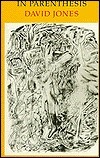What do you think?
Rate this book


256 pages, Paperback
First published January 1, 1937
How cold the morning is and blue, and how mysterious in cupped hands glow the match-lights of a concourse of men, moving so early in the morning.
Night-lines twinkle above the glistening vegetable damp: men standing illusive in the dark light about some systemed task, transilient, regularly spaced, at kept intervals, their feet firm stanced apart, their upper bodies to and fro…
slid through live, kindly fingers
cylindrical shining
death canistering
the dark convenient dump, momentarily piling.
like those others who fructify the land
like Tristram
Lamorak de Galis
Alisand le Orphelin
Beaumains who was youngest
or all of them in shaft-shade
at strait Thermopylae…
This gate of Mars armipotente, the grisly place, like flat painted scene in top-lights' crude disclosing. Low sharp-stubbed tree-skeletons, stretched slow moving shadows; faintest mumbling heard just at ground level. With the across movement of that light's shining, showed long and strait the dark entry, where his ministrants go, by tunnelled ways, whispering.
Al peynted was the wal, in lengthe and brede,
Lyk to the estres of the grisly place
That highte the grete temple of Mars in Trace,
In thilke colde, frosty regioun
Ther as Mars hath his sovereyn mansioun.
First on the wal was peynted a forest,
In which ther dwelleth neither man ne best,
With knotty, knarry, bareyne trees olde,
Of stubbes sharpe and hidouse to beholde,
In which ther ran a rumbel in a swough,
As though a storm sholde bresten every bough.
And dounward from an hille, under a bente,
Ther stood the temple of Mars armypotente,
Wroght al of burned steel, of which the entree
Was long and streit, and gastly for to see.
He thought it disproportionate in its violence considering the fragility of us.
No man’s land whitened rigid: all its contours silver filigreed, as damascened. With the coming dark, ground-mist creeps back to regain the hollow places; across the the rare atmosphere you could hear foreign men cough, and stamp with foreign feet. Things seen precisely just now lost exactness. Biez wood became only a darker shape uncertainly expressed. Your eyes began to strain after escaping definitions. Whether that picket-iron moved forward or some other fell away, or after all is it an animate thing just there by the sap-head or only the slight frosted-sway of suspended wire.
A long way off a machine-gunner seemed as one tuning an instrument, who strikes the same note quickly, several times, and now a lower one, singly; while scene-shifters thud and scrape behind expectant curtaining; and impatient shuffling of the feet - in the stalls they take out watches with a nervous hand, they can hardly bear it.
Lower you lower you - some old cows have malhanded little bleeders for a mother's son.Daily speech shifts to heroic/mythic discourse, prose to poetry, each word capable of mutation. It's a version of stream of consciousness, if you realize that the consciousness isn't a single Woolf or Joyce character, but a combination of a military unit with a mythic imagination. This is serious literary modernism, even featuring author's extensive endnotes to explain what he and his first readers thought was too obscure. And those references are rich beyond the Arthurian, from Shakespeare to popular songs, paintings and minute soldierly bureaucratic details.
Lower you lower you prize Maria Hunt, an' gammy-fingered upland Gamalin - down cantcher - low - hands away me ducky - down on hands down and flattened belly and face pressed and curroodle mother earth
she's kind:
Pray her hide you in her deeps
she's only refuge against
this ferocious pursuer
terribly questing.
Maiden of the digged places
let our cry come unto thee. (176)
Fair-dressed young men about the hanger-stays
(heaven itself would hasten to the south sky)
Break throttle on you sudden, just over;
disturb the immediate air at take-off,
bring you on the napper you'd think, bearing so low
over the long column
getting up the fluence
making the four horsemen speak comfortable words, and smooth her tossing manes; her black-beauty quivering.
Barely clear the poplar top
at cant and obliquely
as Baroque attending angels surprise you with their air-worthiness - but fleet, with struts braced, to mote in the blueness, to discover his dispositions... (124)
He stood alone on the stones, his mess-tin spilled at his feet. Out of the vortex, rifling the air it came - bright, brass-shod, Pandoran; with all-filling screaming the howling crescendo's up-piling snapt. The universal world, breath-held, one half second, a bludgeoned stillness. Then the pent violence released a consummation of all burstings out, all sudden up-rendings and rivings-through - all taking-out of vents - all barrier-breaking - all unmaking. Pernitric begetting - the dissolving and splitting of solid things. In which unearthing aftermath, John Ball picked up his mess-tin and hurried within; ashen, huddled, waited in the dismal straw. Behind 'E' Battery, fifty yards down the road, a great many mangolds uprooted, pulped, congealed with chemical earth, spattered and made slippery the rigid boards leading to the emplacement. The sap of vegetables slobbered the spotless breech-block of No. 3 gun. (24)
he [Germans] finds you everywhere.
Where his fiery sickle garners you:
fanged-flash and darkt-fire thrring and thrrung athwart thdrill a Wimshurst pandemonium drill with dynamo druv staccato bark a you like Berthe Krupp's terrier bitch and rattlesnakes for bare legs...
rattle a chatter you like a Vitus neurotic, harrow your vertebrae, bore your brain-pan before you can say Fanny - and comfortably over open sights:
the gentlemen must be mowed.(182)
And to Private Ball it came as if a rigid beam of great weight flailed about his calves, caught from behind by ballista-baulk let fly or aft-beam slwed to clout gunnel-walker
below below below.
When golden vanities make about,
You've got no legs to stand on.
He thought it disproportionate in its violence considering the fragility of us. (183)